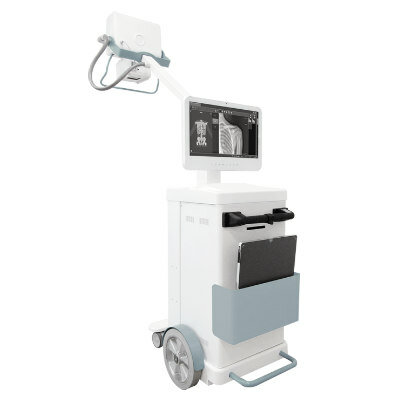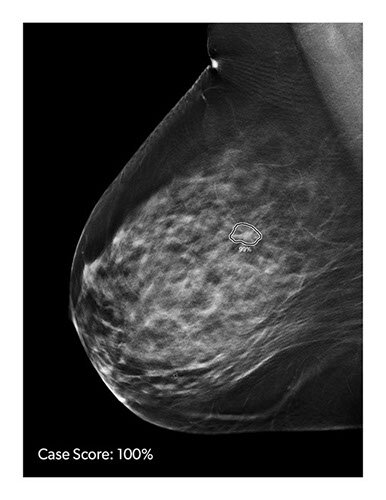Fractionated Radiotherapy Improves Cancer Surgery Results
|
By MedImaging International staff writers Posted on 23 Feb 2017 |
Short-course preoperative radiotherapy (RT) combined with delayed surgery reduces the adverse side effects of rectal cancer surgery, according to a new study.
Researchers at Karolinska Institutet, Uppsala University, and other institutions conducted a phase 3 non-inferiority trial involving 840 patients from 18 Swedish hospitals who were randomized to three different RT regimens, with respect to fractionation and time to surgery. All patients suffered from biopsy-proven adenocarcinoma of the rectum, without signs of non-resectability or distant metastases, without severe cardiovascular comorbidity, and with planned abdominal resection.
The participants were randomly assigned with permuted blocks, stratified by participating center, to receive either 5 × 5 Gy radiation dose with surgery within one week (short-course radiotherapy), or after 4–8 weeks (short-course radiotherapy with delay), or 25 × 2 Gy radiation dose with surgery after 4–8 weeks (long-course radiotherapy with delay). The primary endpoint was time to local recurrence, as calculated from the date of randomization to the date of local recurrence.
The results showed that in patients with any local recurrence, median time from date of randomization to local recurrence in the short-course RT comparison was 33.4 months; in the short-course RT group, it was 19.3 months; and in the long-course RT with delay group it was 33.3 months. Postoperative complications were similar between all three arms; however, the risk of postoperative complications was significantly lower after short-course RT with delay. The study was published on February 9, 2017, in The Lancet Oncology.
“The results of the study will give rise to improved therapeutic strategies, fewer complications with a sustained low incidence of local recurrence, and better survival rates for rectal cancer patients,” said senior author Professor Anna Martling, PhD, of the KI department of molecular medicine and surgery. “It also showed that there is no difference between long-course and short-course radiotherapy, other than that the former considerably lengthens the time for treatment.”
When the total dose of radiation is fractionated into several, smaller doses over a period of several days, there are fewer toxic effects on healthy cells. Typical fractionation schemes divide the radiation dose into units delivered every weekday over about six weeks. The logic behind the treatment is that applying greater amounts of radiation works to lower the effects of accelerated tumor growth that typically occurs during the later stages of RT.
Researchers at Karolinska Institutet, Uppsala University, and other institutions conducted a phase 3 non-inferiority trial involving 840 patients from 18 Swedish hospitals who were randomized to three different RT regimens, with respect to fractionation and time to surgery. All patients suffered from biopsy-proven adenocarcinoma of the rectum, without signs of non-resectability or distant metastases, without severe cardiovascular comorbidity, and with planned abdominal resection.
The participants were randomly assigned with permuted blocks, stratified by participating center, to receive either 5 × 5 Gy radiation dose with surgery within one week (short-course radiotherapy), or after 4–8 weeks (short-course radiotherapy with delay), or 25 × 2 Gy radiation dose with surgery after 4–8 weeks (long-course radiotherapy with delay). The primary endpoint was time to local recurrence, as calculated from the date of randomization to the date of local recurrence.
The results showed that in patients with any local recurrence, median time from date of randomization to local recurrence in the short-course RT comparison was 33.4 months; in the short-course RT group, it was 19.3 months; and in the long-course RT with delay group it was 33.3 months. Postoperative complications were similar between all three arms; however, the risk of postoperative complications was significantly lower after short-course RT with delay. The study was published on February 9, 2017, in The Lancet Oncology.
“The results of the study will give rise to improved therapeutic strategies, fewer complications with a sustained low incidence of local recurrence, and better survival rates for rectal cancer patients,” said senior author Professor Anna Martling, PhD, of the KI department of molecular medicine and surgery. “It also showed that there is no difference between long-course and short-course radiotherapy, other than that the former considerably lengthens the time for treatment.”
When the total dose of radiation is fractionated into several, smaller doses over a period of several days, there are fewer toxic effects on healthy cells. Typical fractionation schemes divide the radiation dose into units delivered every weekday over about six weeks. The logic behind the treatment is that applying greater amounts of radiation works to lower the effects of accelerated tumor growth that typically occurs during the later stages of RT.
Latest Nuclear Medicine News
- New SPECT/CT Technique Could Change Imaging Practices and Increase Patient Access
- New Radiotheranostic System Detects and Treats Ovarian Cancer Noninvasively
- AI System Automatically and Reliably Detects Cardiac Amyloidosis Using Scintigraphy Imaging
- Early 30-Minute Dynamic FDG-PET Acquisition Could Halve Lung Scan Times
- New Method for Triggering and Imaging Seizures to Help Guide Epilepsy Surgery
- Radioguided Surgery Accurately Detects and Removes Metastatic Lymph Nodes in Prostate Cancer Patients
- New PET Tracer Detects Inflammatory Arthritis Before Symptoms Appear
- Novel PET Tracer Enhances Lesion Detection in Medullary Thyroid Cancer
- Targeted Therapy Delivers Radiation Directly To Cells in Hard-To-Treat Cancers
- New PET Tracer Noninvasively Identifies Cancer Gene Mutation for More Precise Diagnosis
- Algorithm Predicts Prostate Cancer Recurrence in Patients Treated by Radiation Therapy
- Novel PET Imaging Tracer Noninvasively Identifies Cancer Gene Mutation for More Precise Diagnosis
- Ultrafast Laser Technology to Improve Cancer Treatment
- Low-Dose Radiation Therapy Demonstrates Potential for Treatment of Heart Failure
- New PET Radiotracer Aids Early, Noninvasive Detection of Inflammatory Bowel Disease
- Combining Amino Acid PET and MRI Imaging to Help Treat Aggressive Brain Tumors
Channels
Radiography
view channel
Novel Breast Imaging System Proves As Effective As Mammography
Breast cancer remains the most frequently diagnosed cancer among women. It is projected that one in eight women will be diagnosed with breast cancer during her lifetime, and one in 42 women who turn 50... Read more
AI Assistance Improves Breast-Cancer Screening by Reducing False Positives
Radiologists typically detect one case of cancer for every 200 mammograms reviewed. However, these evaluations often result in false positives, leading to unnecessary patient recalls for additional testing,... Read moreMRI
view channel
PET/MRI Improves Diagnostic Accuracy for Prostate Cancer Patients
The Prostate Imaging Reporting and Data System (PI-RADS) is a five-point scale to assess potential prostate cancer in MR images. PI-RADS category 3 which offers an unclear suggestion of clinically significant... Read more
Next Generation MR-Guided Focused Ultrasound Ushers In Future of Incisionless Neurosurgery
Essential tremor, often called familial, idiopathic, or benign tremor, leads to uncontrollable shaking that significantly affects a person’s life. When traditional medications do not alleviate symptoms,... Read more
Two-Part MRI Scan Detects Prostate Cancer More Quickly without Compromising Diagnostic Quality
Prostate cancer ranks as the most prevalent cancer among men. Over the last decade, the introduction of MRI scans has significantly transformed the diagnosis process, marking the most substantial advancement... Read moreUltrasound
view channel
Deep Learning Advances Super-Resolution Ultrasound Imaging
Ultrasound localization microscopy (ULM) is an advanced imaging technique that offers high-resolution visualization of microvascular structures. It employs microbubbles, FDA-approved contrast agents, injected... Read more
Novel Ultrasound-Launched Targeted Nanoparticle Eliminates Biofilm and Bacterial Infection
Biofilms, formed by bacteria aggregating into dense communities for protection against harsh environmental conditions, are a significant contributor to various infectious diseases. Biofilms frequently... Read moreGeneral/Advanced Imaging
view channel
New AI Method Captures Uncertainty in Medical Images
In the field of biomedicine, segmentation is the process of annotating pixels from an important structure in medical images, such as organs or cells. Artificial Intelligence (AI) models are utilized to... Read more.jpg)
CT Coronary Angiography Reduces Need for Invasive Tests to Diagnose Coronary Artery Disease
Coronary artery disease (CAD), one of the leading causes of death worldwide, involves the narrowing of coronary arteries due to atherosclerosis, resulting in insufficient blood flow to the heart muscle.... Read more
Novel Blood Test Could Reduce Need for PET Imaging of Patients with Alzheimer’s
Alzheimer's disease (AD), a condition marked by cognitive decline and the presence of beta-amyloid (Aβ) plaques and neurofibrillary tangles in the brain, poses diagnostic challenges. Amyloid positron emission... Read more.jpg)
CT-Based Deep Learning Algorithm Accurately Differentiates Benign From Malignant Vertebral Fractures
The rise in the aging population is expected to result in a corresponding increase in the prevalence of vertebral fractures which can cause back pain or neurologic compromise, leading to impaired function... Read moreImaging IT
view channel
New Google Cloud Medical Imaging Suite Makes Imaging Healthcare Data More Accessible
Medical imaging is a critical tool used to diagnose patients, and there are billions of medical images scanned globally each year. Imaging data accounts for about 90% of all healthcare data1 and, until... Read more
Global AI in Medical Diagnostics Market to Be Driven by Demand for Image Recognition in Radiology
The global artificial intelligence (AI) in medical diagnostics market is expanding with early disease detection being one of its key applications and image recognition becoming a compelling consumer proposition... Read moreIndustry News
view channel
Bayer and Google Partner on New AI Product for Radiologists
Medical imaging data comprises around 90% of all healthcare data, and it is a highly complex and rich clinical data modality and serves as a vital tool for diagnosing patients. Each year, billions of medical... Read more





















